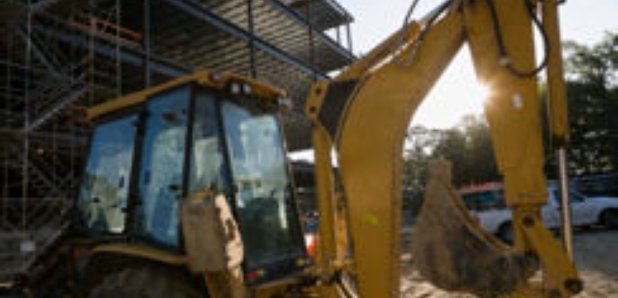GCU researchers develop app to save lives in construction
29 July 2019, 07:13 | Updated: 29 July 2019, 07:16

An app which aims to reduce injuries and save lives on construction projects has been developed by researchers at Glasgow Caledonian University (GCU).
It will allow architects and designers to access the app to help them improve health and safety for construction workers, as well as for building users and occupiers.
Using videos and images, the app highlights any health and safety issues that are particular to the design of individual buildings.
The project was led by Billy Hare, a professor in construction management at GCU, backed by research funding of £102,800 from the Institution of Occupational Safety and Health (IOSH).
Prof Hare said the app has the potential to prevent mistakes causing accidents and ill-health from being repeated.
"Academics in the past have attempted to create systems that tell architects and designers the 'safest' design option, but this approach is too simplistic and those who make design choices don't work that way," he said.
"We wanted to create a knowledge database that recognises there are many design options and each has its own pros and cons when it comes to health and safety. Therefore, designers can make informed decisions.
"A key factor for this research was the visual nature of the digital app's content, which seemed to work best with new graduates.
"Its real potential lies in being able to capture knowledge from more experienced designers for the next generation to counter the age-old problem of 'organisational memory loss' and prevent the same old mistakes that cause accidents and ill-health being repeated.
"We are now looking for partners to develop the prototype digital app for full-scale industry use."
According to IOSH, up to half of construction accidents in the UK have a connection to the design of the building.
Mary Ogungbeje, research manager at IOSH, said that utilising technology could help designers in developing and reviewing building designs.
Ms Ogungbeje said: "Everyone would agree that it's always best to prevent an accident from taking place in the first place, rather than reduce the injury.
"In today's age of technology, being able to utilise digital training resources to help designers do just that is great. Such tools can make a real difference in upskilling professionals, irrespective of their level of experience.
"Architects and civil engineers can identify hazards and come up with better controls when developing and reviewing designs. Ultimately, this will reduce injuries and save lives."






















